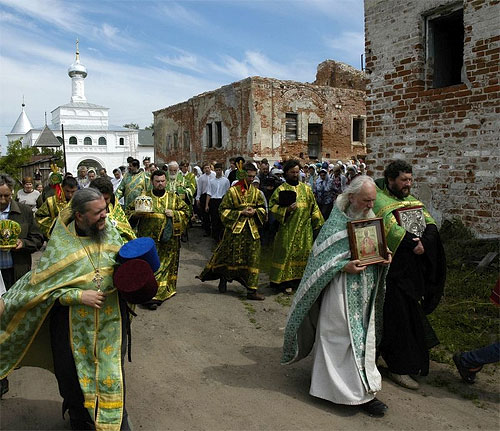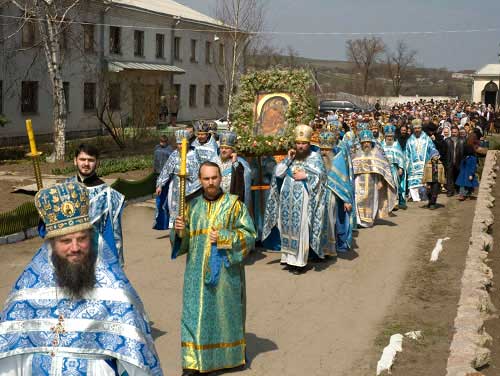All of the differences mentioned above are important, but I think they are not the fundamental differences between Catholic and Orthodox. The fundamental differences are harder to articulate because they are really about tone and culture. Perhaps the simplest way of putting it (probably an over-simplistic way) is to say that Catholicism is about reason while Orthodoxy is about mystery. Catholicism is, at least in theory, a very rationalist religion. The whole notion of natural theology and the analogia entis is premised on this. Its scholastic heritage means that it sees philosophy and science as, at least in theory, its allies.
In Orthodoxy, by contrast, there is a much greater emphasis on what cannot be known. The apophatic school of mysticism - where one focuses on the unknowability of God rather than on anything that can be known about him - is very important to Orthodoxy, which ranks Gregory of Nyssa (the founder of this tradition in Christianity) as a major saint, not to mention Pseudo-Dionysius and Gregory Palamas. Of course there is also a strong cataphatic tradition in Orthodoxy (e.g. Symeon the New Theologian), and there is also a strong apophatic tradition in Catholicism (the Cloud of Unknowing, the Rhineland mystics), but it seems to me that despite this it's more central to Orthodoxy. In Catholicism, apophatic and cataphatic mystics alike seek to understand. In Orthodoxy, they seek to experience. It's all about mystery, devotion, liturgy, art, and beauty. One can only really understand it by taking part.
Also, remember that tradition is far more important for Orthodoxy than for Catholicism. It's important for Catholicism, of course, but not to the same degree. This is one reason why there has been much less theological creativity in the Orthodox churches than in the Catholic and Protestant ones.
I think I'm right in saying that the Orthodox churches take a less positive approach to modern science than Catholics typically do. Creationism is rife in eastern Europe, for example.
But as far as actual doctrines go, I don't believe there is a great deal of difference between Catholics and Orthodox. Obviously they have different understandings of the Trinity, which go beyond just the filioque, but I'm not convinced that that's more significant than the more general differences in approach outlined above.










.jpg)



